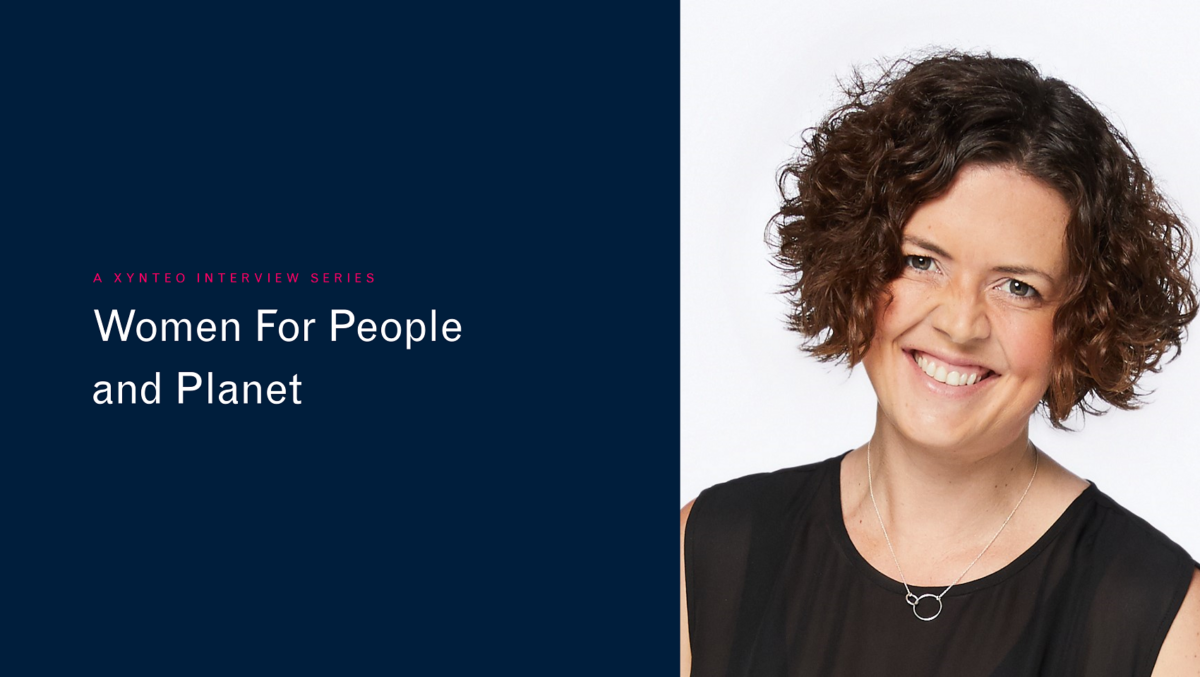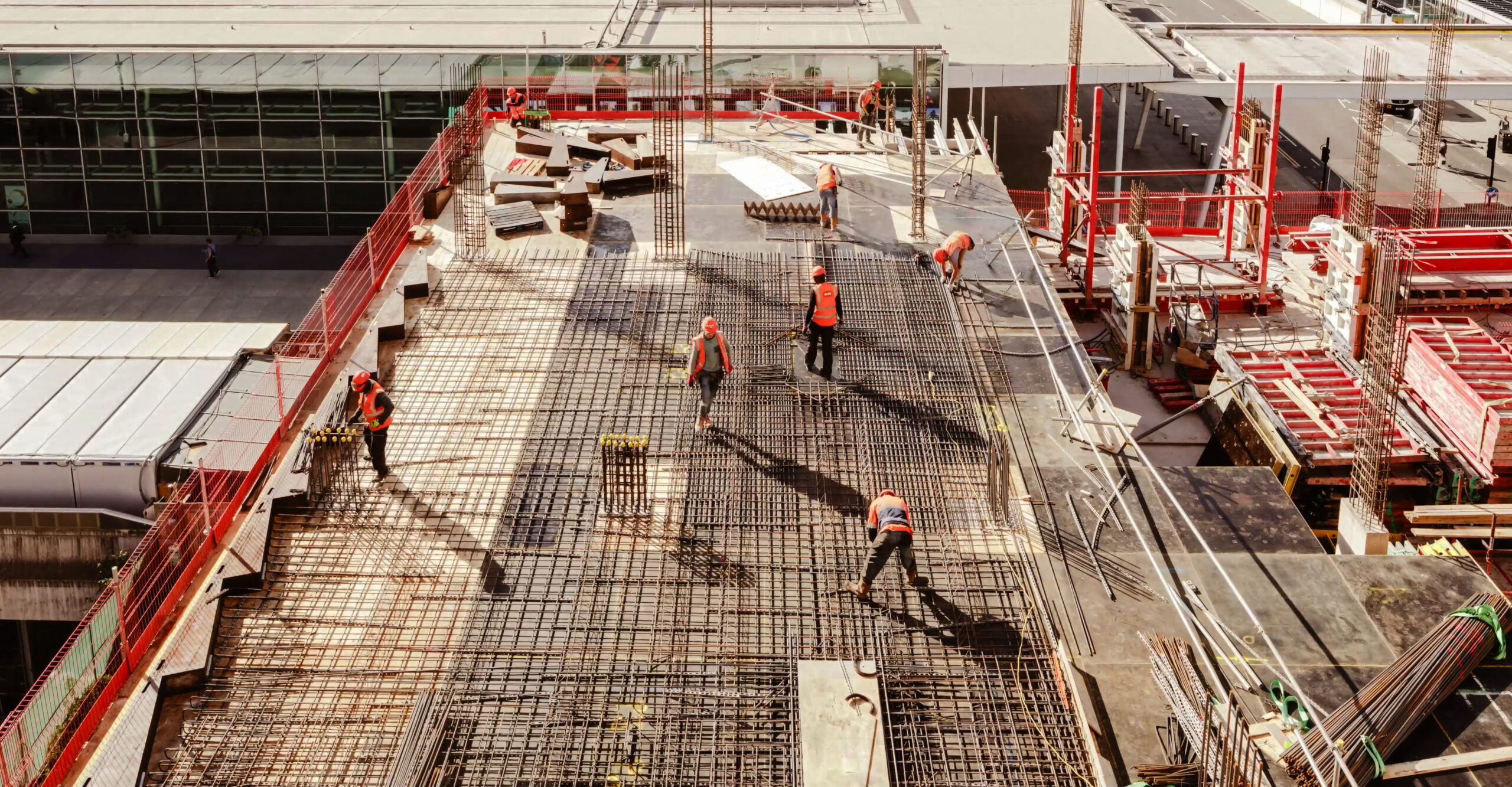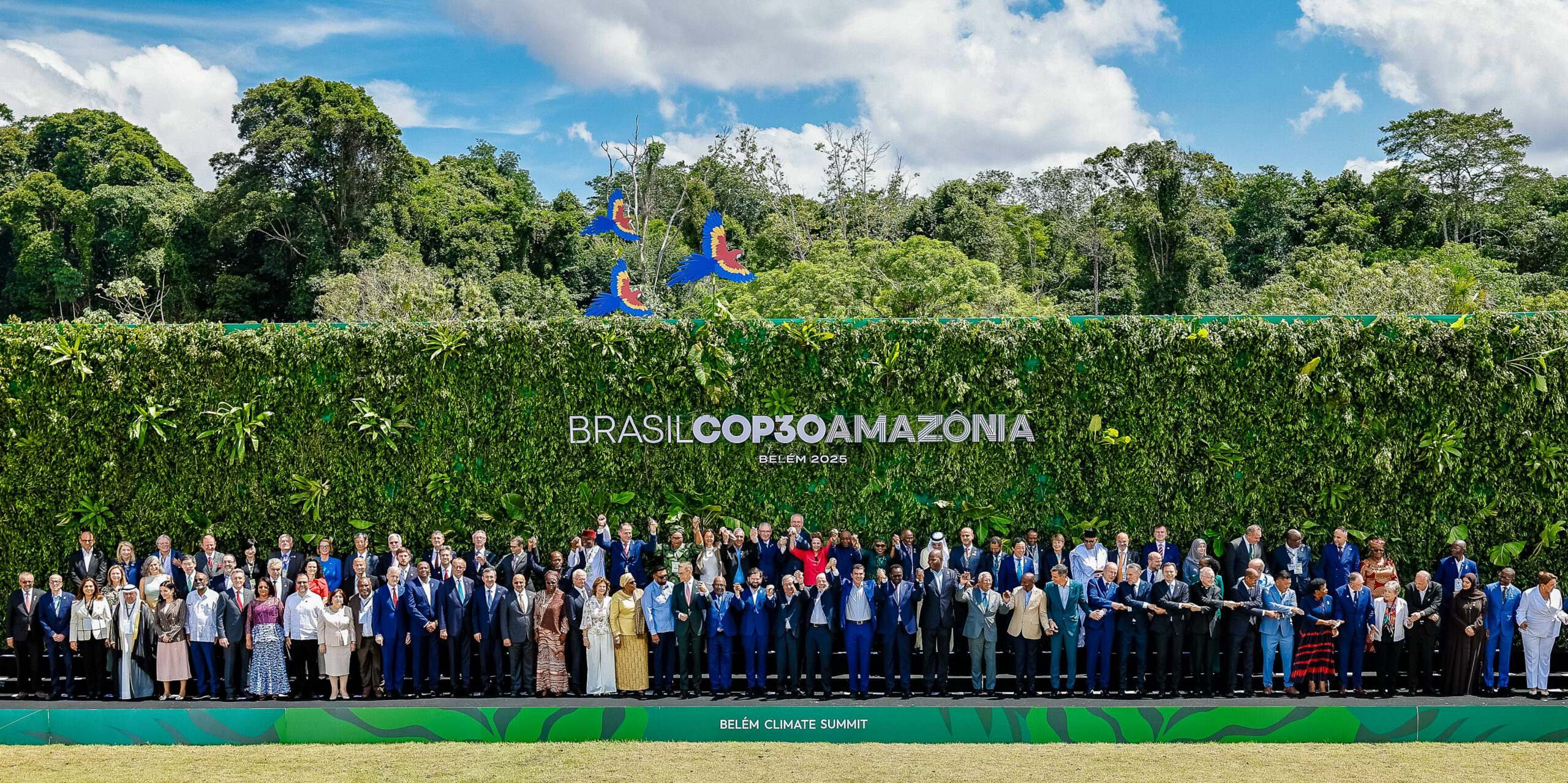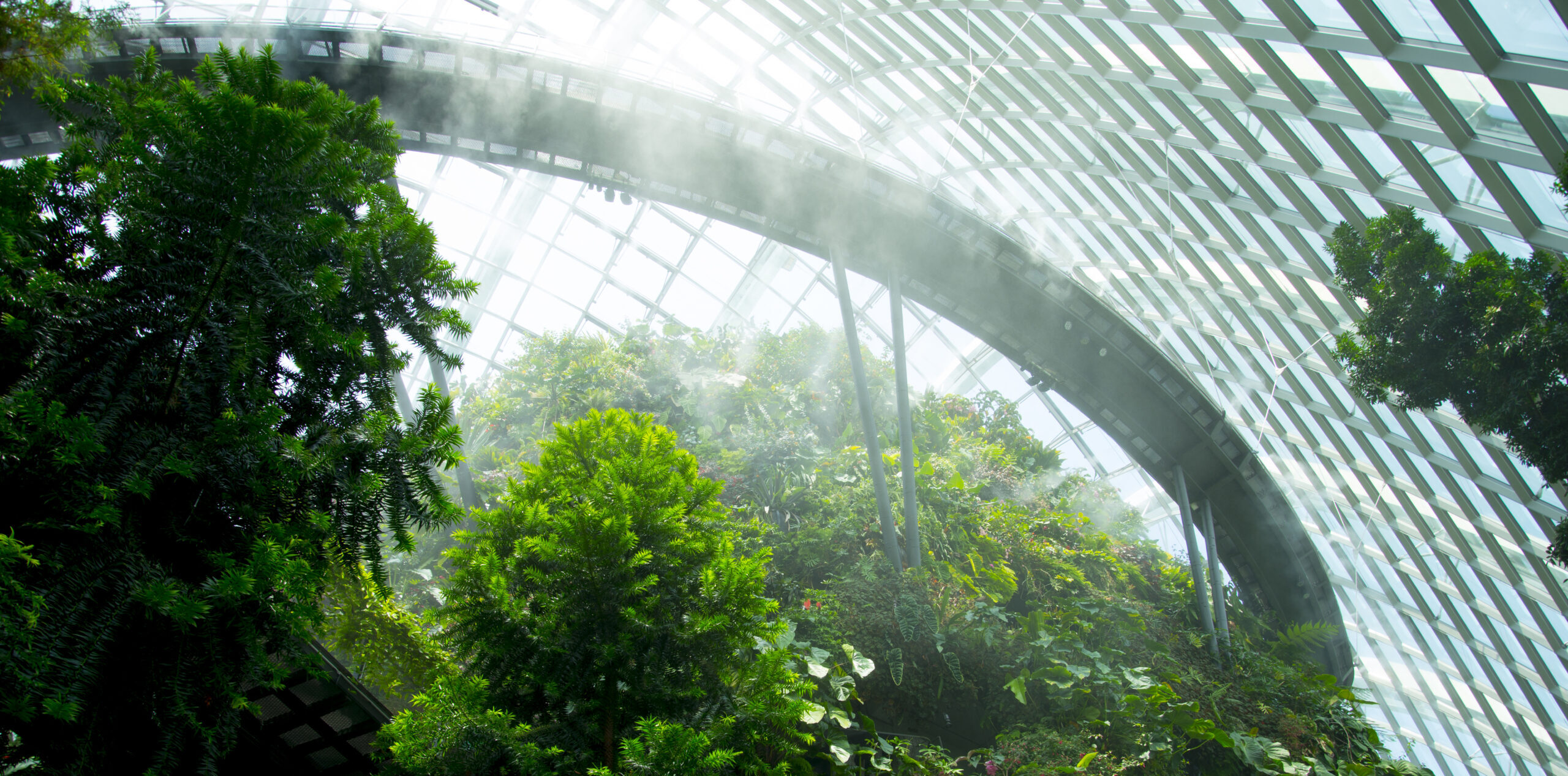In a career reaching back to the beginnings of sustainability as a business discipline, Beth Knight has been at the centre of creating positive impact in roles that have spanned Accenture, EY, and Amazon.
From finding solutions to some of the critical challenges of our time, such as the COVID-19 pandemic and the war in Ukraine, to balancing the demands of home life to creating the sustainability leaders of tomorrow, her impact has been impressive.
Xynteo’s Sally Gray sat down with Beth to talk about her journey, what she has learnt, and how she sees the future of sustainability in the corporate world.
What does your personal journey towards sustainability look like?
Beth: When I did my first university degree, the profession of sustainability didn’t exist. It was a career path that no one really knew about. So, I’m somebody that came into this work quite early via management consulting at Accenture and that’s where I first met John Elkington. He was advising Accenture on an internal project to think about how the business should, and could, accelerate its corporate citizenship impact. And, that project was a pivotal ‘eureka’ moment in my career where I heard and understood the phenomenal impact that business can have in effecting positive change in the world.
I realised that you don’t have to make tough choices between being commercially minded on one side and being purpose-led or kind on the other side. You can bring all of that into who you are and how you shape your professional impact – in the work that you do, how you partner with others, and the type of leader that you become.
What are some of the highlights from your career journey so far?
Beth: My most recent highlight was at Amazon, where I was hired to help build out a community investment function for Europe – starting with COVID-19 pandemic relief. We were using the company’s logistics to deliver food to children at risk of malnutrition in the UK during lockdowns. When the Ukraine war broke out, I was asked to lead the company’s global humanitarian aid response to that conflict. We made bold commitments and focused our efforts on supporting the 6million displaced Ukrainians – who were predominantly highly vulnerable women and children.
We ended up building a large value chain of relief aid from Eastern to Western Europe to help meet the challenge of the biggest influx of displaced persons in the region since WW2. Amazon ultimately contributed over $USD 100 million in humanitarian aid- everything from cash grants to charities like Save the Children, to donations of essential goods, transport and storage. We also received the Ukraine Peace Prize from President Zelensky for the work that AWS undertook in taking the governments infrastructure into the cloud. Pretty impactful work!
What are the skills and experiences that you’ve valued the most on this journey and have equipped you best?
Beth: One of the nicest compliments that I ever received was that of being “graciously bold”. Which I think is a nice way of saying I’m a risk taker, but I’m polite about it! Being willing and able to take risks but taking people with you and having people trust your judgment. The fact that I was asked to lead a global humanitarian aid response is an indication of that. Computational thinking, data and communication skills are all highly important. I like to work back from problems. There are many ways to reach a goal, but by knowing your goal and having a flexibility of approach allows you to bend with moments of crisis, chaos, wicked problems, and the polycrisis that we’re living through.
People working in sustainability tend to exhibit more traits of neurodiversity which is interesting. Solitaire Townsend from Futerra wrote an article on dyslexia and sustainability for Forbes recently which is a great read. When we launched the UK’s corporate responsibility and sustainability apprentice cohort, ~30% of the individuals in that cohort disclosed that they had some form of divergent thinking such as dyslexia, ADHD or autism. And I think that’s great because we need diverse thinking to unpick these crazy problems, we need those minds and voices.
What opportunities have been the most important to making progress in your sustainability journey?
Beth: When I left Accenture and went to EY, that was another a pivotal career moment for me. I’d spent my early years in Accenture, travelling abroad with the jobs for both commercial and non-profit clients. And, then I was referred into a role at EY to build a corporate responsibility function for their Financial Services business. I took the knowledge I’d learned at Accenture across to EY and grew a team of 15 across EMEA. We broke ground on a number of ‘firsts’ for the company – including the company’s first GRI- accredited report, and the first ‘convergence’ project with the World Bank –where we were bringing together the private public and third sector to collaborate on systems change projects.
Similarly to my time at Accenture, I found some amazing role models at EY – people like Deborah Holmes, Amanda Gethin and Susan Zohn who gave me the trust, space and resources to launch an Intrapreneur program sending high performing leaders to emerging markets to deliver impactful projects with entrepreneurs. Since leaving EY, that program has evolved even further and become part of the ‘EY Ripples’ initiative globally.
You don’t have to make tough choices between being commercially-minded and purpose-led as a leader. You can bring these together in how you shape your professional impact through the work that you.
What barriers have you faced?
Beth: Uh, well, there’s all the normal barriers that you face as a female leader – and I don’t need to get on my soapbox about that. For me personally, it became a harder when I started having young children. When I had my daughter, I came back from maternity leave and my employer was great. I became Head of Strategy for a purpose-led business thinktank. It was great exposure working with some FTSE500 business leaders and boards on organisational change. My family travelled with me a lot, so I was super-mum-ing-it around the world, trying to be everything to everyone. And it was knackering. Figuring out how to slow down and place my effort in the most impactful places, and not just every place. I learned that lesson the hard way. I got very close to burnout because I was pushing myself too hard.
Subsequently, with the Ukrainian humanitarian work, my family decided to host refugees in our home. I didn’t want to be one of these people that are cheerleading from the side-lines and not living their values. But taking vulnerable people into your home is a lot of responsibility. It meant we were exposed to secondary trauma. One of our refugee guests is a 68-year-old Ukrainian woman who is grieving the death of her son. After 8 months, and with the help of Save the Children, we were able to also relocate and reunite her 72-year-old sister – who is now also living with us! Seeing with the two sisters together crying in one another’s arms is a memory that will never leave me. I can share facts with you about both the challenges and impact of my work to-date, but it’s not necessarily the ‘big stuff’ that stays with you. Butit’s those small human moments that really make your heart soar in hard times.
How do you see the future of the CSO role/sustainability teams in the board room?
Beth: I think that we’re at an interesting acceleration point for the profession. Soon, it will be typical for everyone on Boards to be educated on sustainability and for a named individual or subcommittee to be accountable for it – embedded in governance discussions alongsidethe financial prosperity of the company. Organisationally, I don’t think there’s a right or wrong way to structure sustainability governance. It depends on the type of company, power bases and influence amongst its leadership, and where resources can be prioritised.
Within the sustainability profession itself, I have some concerns that it’s becoming lessdiverse. We’re seeing a lot more senior business leaders having the word sustainability added to their job titles with little or no qualification or lived experience under their belt. Whilst it’s important to have these roles and accountability at the right level, we also need senior leaders who are new to the profession to self-educate and build strong teams or advisors around them. More than ever before, and at an increasingly pace, we need sustainability leaders who can help businesses make the bold moves that address both social and environmental challenges.
Finally, any closing tips you would like to share?
Beth: For many of us working in sustainability, it’s a vocation and purpose-led career journey. For women in sustainability, or perhaps anyone with caring responsibilities, it can be harder because your need for resilience both at work and home is paramount. Ask for help. Tell people what you need. And don’t be afraid to slow down so you have energy in the tank to speed-up in moments where your impact can really be felt.
To be inspired by all our latest interviews, visit our Women for People and Planet interview hub.
Read moreStay up to date with our latest interviews by following us on social media (LinkedIn I Twitter), or Contact Us to find out how we can help your leaders and organisation create people and planet-positive impact.



